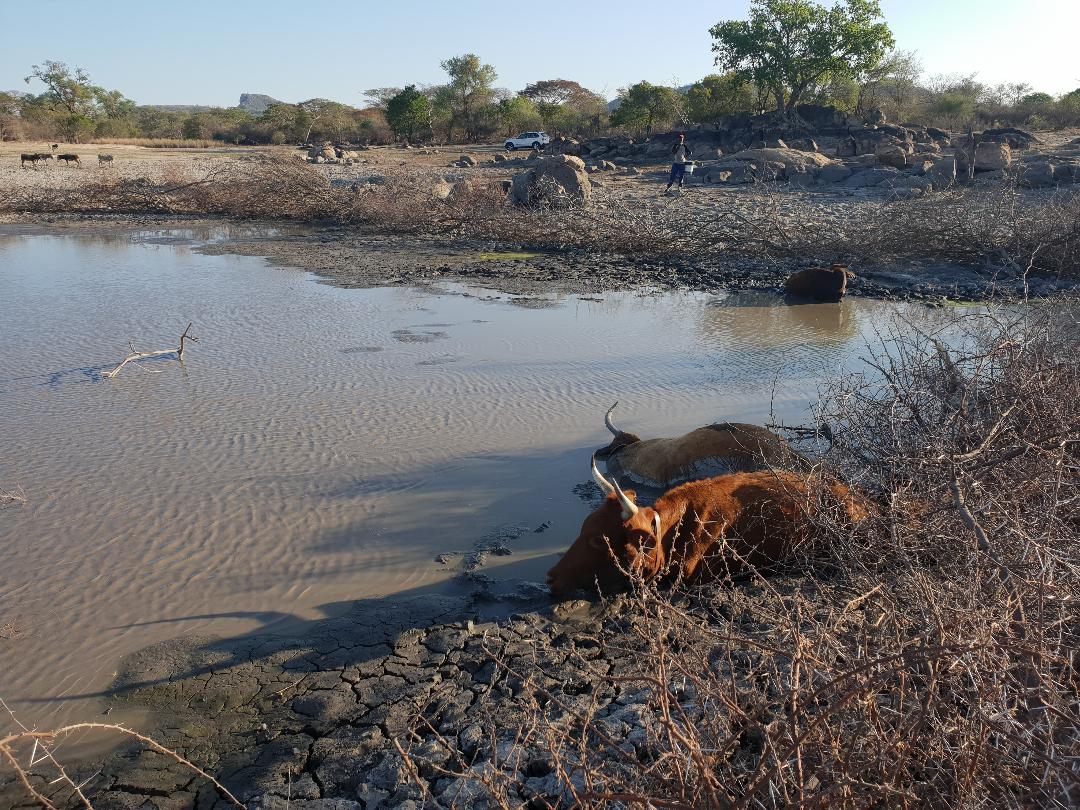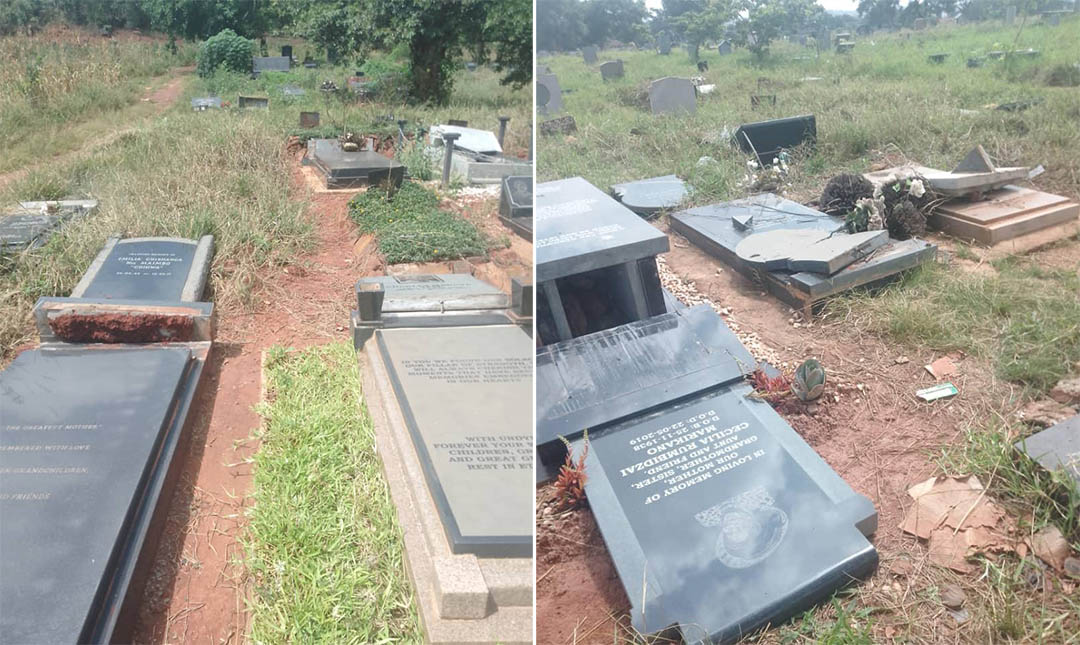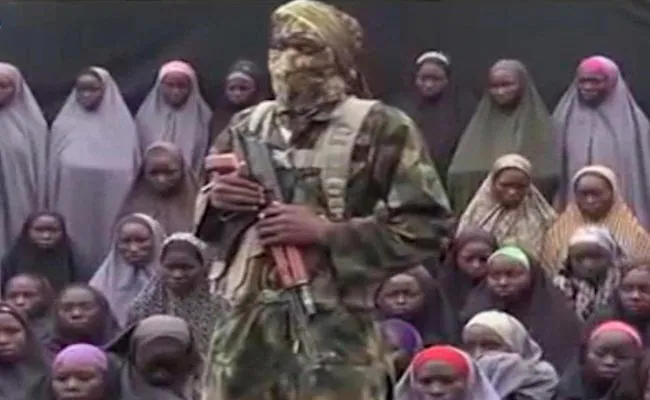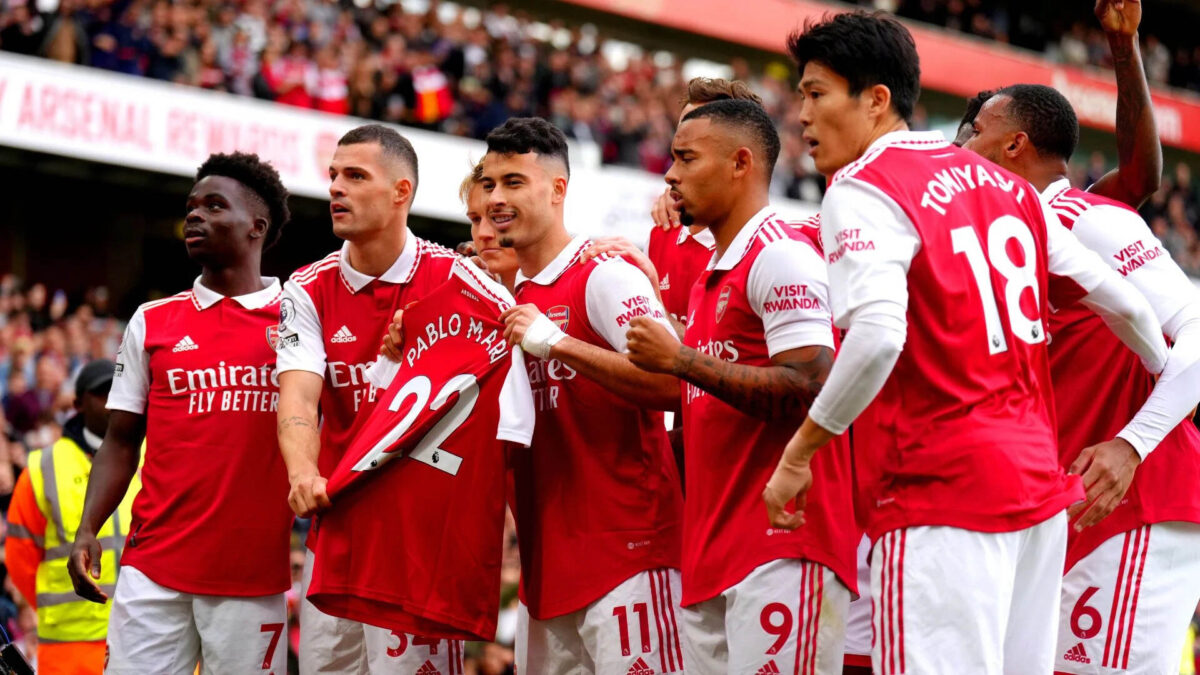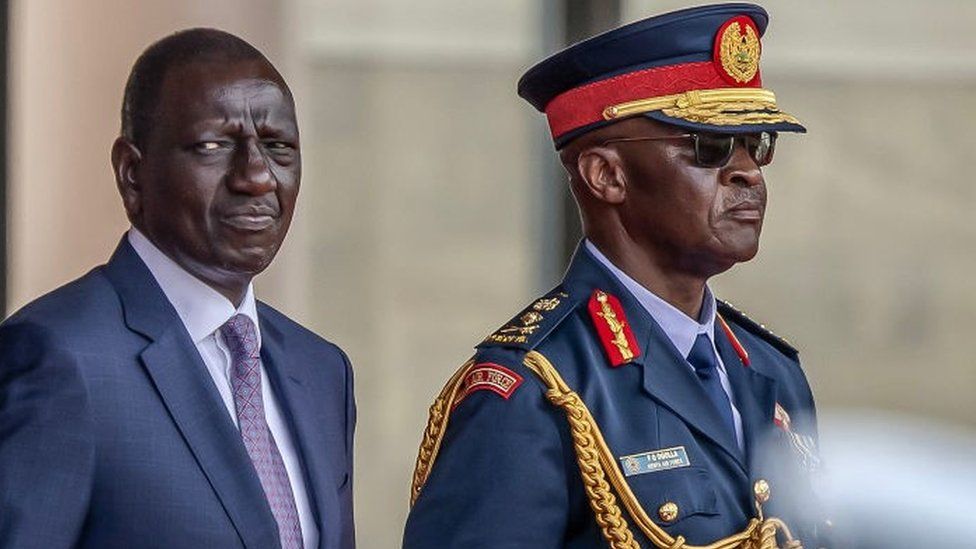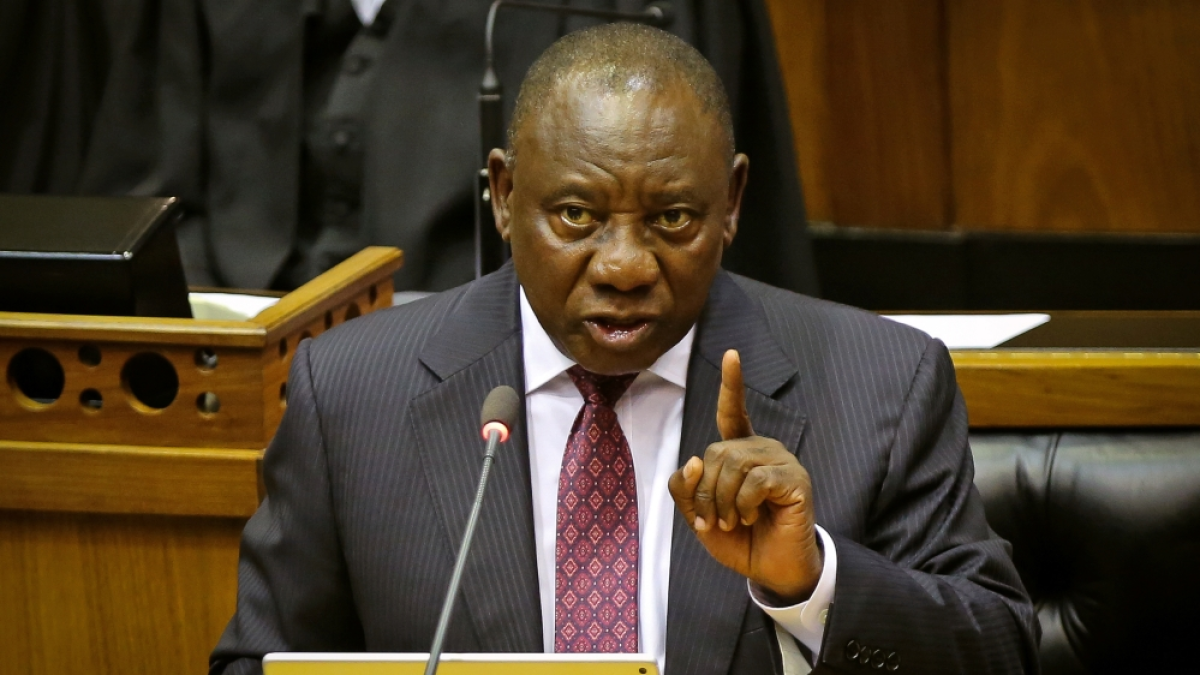I SPENT the past week in Zimbabwe. The last time I did so was more than a month ago when I spent a whole afternoon with Chief Maduna, from Filabusi, my father’s friend and my chief.
Chief Maduna has been an outspoken critic of external exploitation in his mineral rich district by outsiders in which the local community benefits nothing. More importantly, he has called for accountability for Gukurahundi and sought United Nations’ intervention. For his outspokenness, he has been intimidated and surveilled by Zimbabwean state agents- nothing new to the liberation struggle hero who spent time in at least 10 Rhodesian jails.
Natural and man-made disaster
I visited rural areas in Matabeleland and the Midlands and saw the devastation that the drought has wrecked. I saw emaciated and weak cattle eating dried plants, and many dead and dying from hunger and thirst. Rural communities have become quite desperate and powerless in the face of searing heat and elusive rains. There is no possibility to supplement livestock feed without money. The few who can, have been desperately selling some cattle to buy feed to keep the rest alive, itself a losing battle. If it does not rain in the next few weeks, villagers will lose all their livestock – the only remaining thing of value they still have. Because there are no rains, many people will not be planting grain for next season, those who will plant anyway, are unlikely to yield anything. That means we can expect even worse hunger next year.
I came across many hungry and thirsty kids, walking long distances to and from school, in the harsh and punishing heat. I spoke to villagers who felt defeated, abandoned and helpless. Nowhere did I see or hear anything suggesting hope. I saw how the cashless, Ecocash (mobile money) economy has penetrated rural Zimbabwe and how despite its benefits and advantages, with every transaction, the government and Econet (the mobile telephone company which runs it) are making billions from an impoverished population.
But the greatest devastation is man-made. It is clear to me that things are worse than they have been in decades: the healthcare system has collapsed, fuel is still in either short supply or unaffordable, cash shortages (although the government has threatened to print new notes), runaway inflation, stagnant incomes, soaring price hikes, no electricity between 5AM an 10PM everyday, no water for three out of five days. I experienced it all.
I am convinced that everything must change. At the heart of this change lies Zanu PF, the ruling party. Conventional wisdom would suggests that the Zanu PF ruling elite would expectedly care little for all these problems that largely affect the urban population which has not voted for it since 2000. Rural voters have never had electricity; fuel shortages are inconsequential to them and cash shortages less impactful. Zanu PF’s prize, which it has never taken its eyes off, is rural Zimbabwe.
To the extent that power cuts, water shortages, cash, medicine and fuel shortages and skyrocketing prices in the face of shrinking incomes can be seen as “urban problems” affecting largely “opposition” supporters, Zanu may have no interest in fixing these problems. On the contrary, it may use them to punish the urban population for its loyalty to the opposition, opting as it has always done, to focus on rural areas.
But Zanu is also failing rural populations in its inability to respond to the drought and other interconnected problems rural communities face. It continues to remind rural communities that it gave them land, and uses food aid and agricultural subsidies to win and maintain rural voter loyalty.
But increasingly as the command agriculture scheme where $3 billon of the rural agricultural scheme is unaccounted for has shown, more is being plundered and far less finding it’s way to rural communities. Had the command agriculture money been properly used, rural communities would be far more resilient and less vulnerable in the face of the current drought. There would also be adequate food stocks to avert the famine that threatens up to 6 million Zimbabweans. This was ostensibly the intention of the “bogus” agricultural subsidy scheme.
The looting own goal
The looting frenzy now presents a clear and present danger to Zanu PF’s hegemony in an unprecedented way – eating into it’s own survival strategies. This is something which the opposition could capitalize on.
But how long can this strategy last, especially where rural population are themselves devastated by the political and economic crises? In addition, the assumption of a static rural population is increasingly false. There is a lot of rural-urban migration and movement. The penetration of mobile money into the rural areas is additional testament to this convergence.
I have argued previously that Zimbabwe’s economic problems are politically manufactured (see above). They will therefore require political solutions. The current ruling political elite is disconnected, uninterested, selfish and corrupt. It will not fix Zimbabwe’s problems. It has neither desire nor intention to do so because it the cause of these problems. There are dozens of everyday things this elite does that reinforce its preoccupation with looting public resources and plundering the economy.
Take off the gloves!
So what is the solution? If Zimbabwe’s problem is intrinsically political, political actors will have to step up. In the absence of an interest or desire by the ruling political elite to do the right thing and resolve the country’s crisis, the opposition will need to step up. It will have to show leadership. It has to confront the kleptocratic, kakistocratic, system of governance using whatever and all manner of constitutional ways at its disposal. It must exert serious pressure to achieve political change. This is the reason it is in politics. To challenge the ruling party and to remove and replace it. It cannot expect ordinary citizens to do its job so it can come and reap the benefits after.
The expectation that frustrated citizens will peacefully protest against their suffering and force Zanu PF to address them or to resign, absent leadership and mobilisation, is naive, false and opportunistic. Thus far, different and disparate groups have risen up to protest against issues affecting them: doctors in one week against low salaries and poor working conditions that see patients die needless deaths, nurses the next and teachers the other. At another time, the general population protesting against fuel increases.
Missing in all this has been the glue that locates and situates all these underlying struggles in a political context, and that harnesses the power of the different groups to push for real and effective change. This has left each individual group exposed and vulnerable to attack, abuse and harassment by the government.
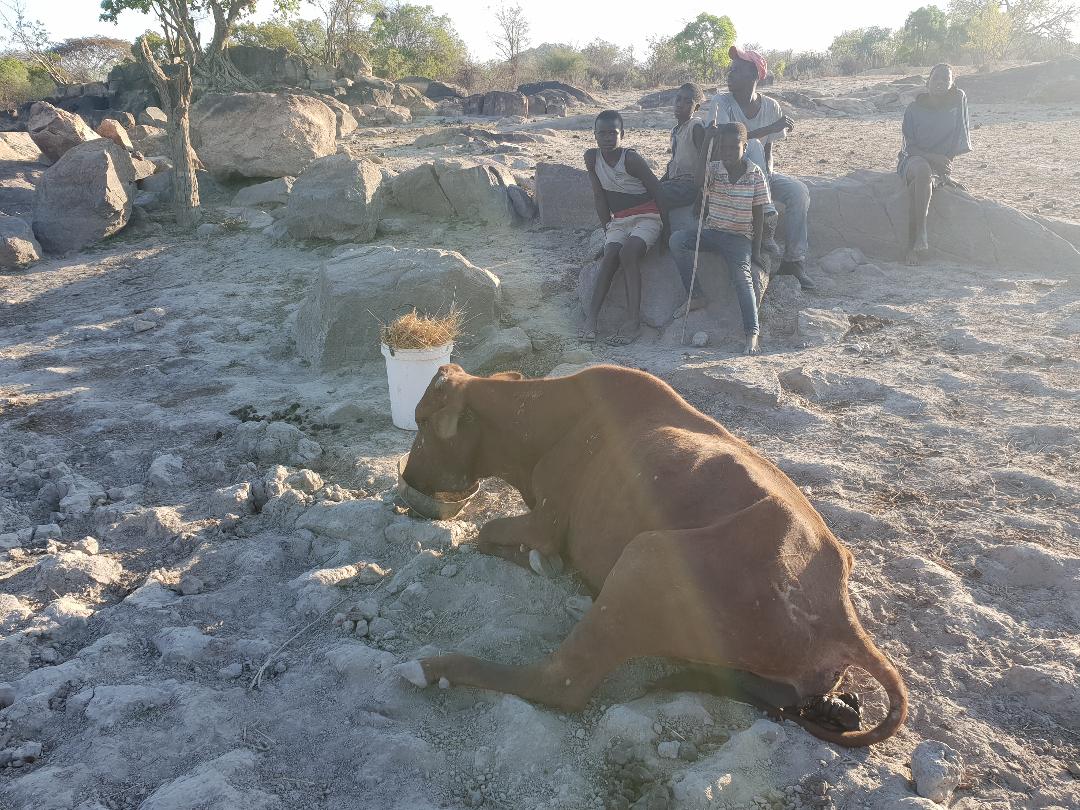
Last week, the government purportedly fired doctors for striking. Last year, it did the same with striking nurses. It routinely abducts and tortures leaders of teacher’s unions and deploys police to beat and block public protesters. It can easily do this because the struggles for just and fair demands by these different groups are disparate, divided, singular, disunited and therefore weak and ineffective. There is little argument that in view of the underlying governance and leadership failures by the government, these different set of demands are essentially one struggle that has – conveniently for Zanu PF, been Balkanized into separate struggles that it can address individually with repression.
Struggles against oppression must and should be organised. They are neither haphazard nor accidental. Political alternatives must covet and seek to win hearts and minds of the citizens just as liberation movements did. Political movements must mobilize communities behind their cause and rally them to challenge abusive policies, governance failures and corruption including via peaceful public protests.
On the second anniversary of the coup, with living conditions worse that in pre-coup days, more Zimbabweans are clear now than ever in their appreciation of Zanu PF’s failures. The post-coup honeymoon is over, and has put paid to the expectation of reform, the Pfee brigade has shrunk into oblivion on the realization that the duck was rubber not real after all. But, it would be a mistake to assume that the disappointment with Zanu PF’s governance failures translates into endorsement of the MDC.
But in all this, what has the opposition offered to Zimbabweans as an alternative? What hope has it given? What courage has it inspired on citizens that it is possible to fight the oppressive system led by Zanu PF? What confidence has it given to the public that unjust laws can and should be challenged as our liberation movements did against Ian Smith’s Rhodesian regime? What political and economic consciousness has it raised amongst citizens regarding the true and political nature of their challenges?
Waiting for an economic crisis inspired implosion or for the 2023 elections is hardly a strategy. Harping on about legitimacy when the greater and immediate failure by Zanu PF is grand corruption, plunder, looting, bad governance and poor leadership is evidence of disconnect and poor strategy. Convening strategy meetings to simply pronounce what citizens already know is a hardly useful and inspiring.
Lessons from Sudan
Former Sudanese President, Omar Bashir was politically illegitimate in so many respects- he came via a coup- and cheated and defrauded his way through many elections, but it was his poor leadership failures and disastrous economic and political choices and decisions that prompted Sudanese from all walks of life (including his own erstwhile supporters) to rise up against him. He increased prices of fuel and bread and failed to fix the country’s economic problems – mainly created by him- that caused terrible suffering on the Sudanese who eventually rose up against him.
To be clear, although the underlying causes were structural and political, the Sudanese were triggered to remove Bashir by far less than what Zimbabweans have had to endure. They still had cash, they had electricity, they had fuel, they had a functioning financial system, they had less monstrous displays of primitive accumulation, and they did not have a drought or famine affecting 6 million people.
Freedom is not free
At the centre of any societal transformation is people. Zimbabweans must realise that no one is coming to save them. There is no calvary or knights in shining armour riding from the West (America and Europe), North or East towards Zimbabwe. Four decades of Mugabe and Zanu PF should have taught them this.
The liberation struggle in which they liberated themselves (yes with external support and solidarity from Africa and overseas) should be a constant reminder that their liberation is in their hands
If ever the country needed leadership from political actors- especially the opposition- it is now. Citizens know what Zanu PF leaders have to offer and what it has brought and failed to deliver. As long as Zimbabwe’s problems remain political, the opposition will need to persuade citizens that it offers them a better future than Zanu PF. To that end, its actions must speak louder than its words. It will have to lead the struggle to liberate the country from the tight clutches of Zanu PF from the front- with all the dangers it brings to it. What our fathers and the liberation struggle has taught us is that freedom has never been free.
Siphosami Malunga is a Zimbabwean lawyer and writes in his personal capacity
